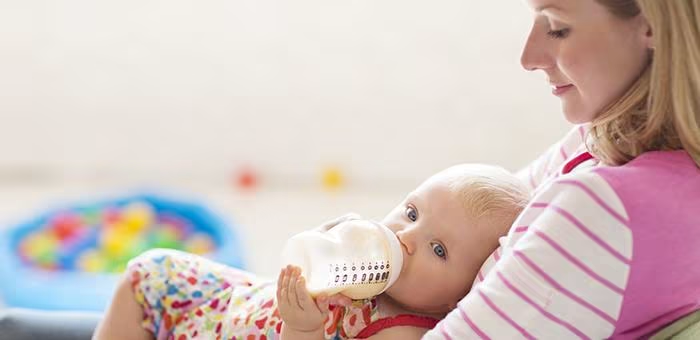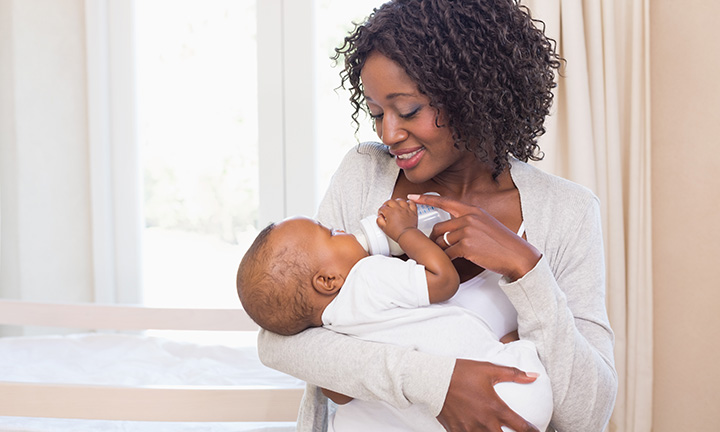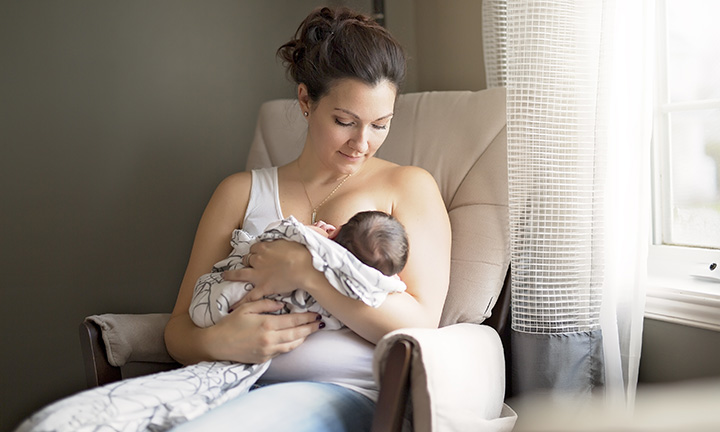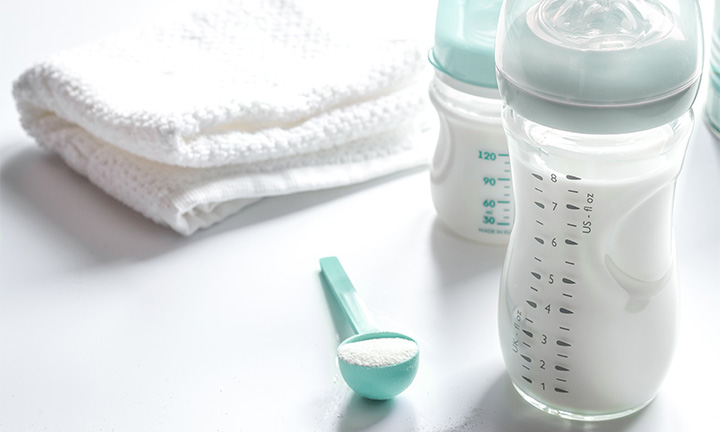
Formula Feeding Guidelines
Although nothing truly duplicates breast milk, modern formulas are a good choice for your baby. If you choose to supplement breastfeeding, try to wait until your baby is 3 to 4 weeks old so your milk supply is well established.
The moments when you're giving your baby a bottle are wonderful times to feel close and to get to know each other. And your baby's father, as well as other family members, can do some of the feeding right from the start, or whenever you decide to supplement or switch. Whoever is doing the feeding needs to hold the baby's head at a slightly elevated angle and keep the bottle held up so she doesn't suck in a lot of air.
Choosing the Right Formula
Infant formulas are made to meet your baby's nutritional needs, very much like the breast milk on which they're modeled. Most formulas are modified cow’s milk, and all standard brands are very similar. Unless your healthcare provider tells you otherwise, pick one that is fortified with iron.
Formulas come in three types of preparations: ready-to-feed (the most expensive), liquid concentrate (less expensive), and powder (the most economical). Read and follow the mixing directions on the package carefully.
Water and Formula
You don't need to use bottled water in your baby's formula unless there's a problem with your water supply. To confirm that your tap water is safe, check with your local or state health agency, and be sure to bring any questions or concerns to your healthcare provider as well.
After babies are 6 months old, they also need fluoride. Bottled water may not contain any, and your water supply may or may not have adequate quantities. Your healthcare provider can tell you if your baby needs extra fluoride beyond what is used for formula preparation.
How Much Formula Is Enough?
Newborns start out with a stomach that can hold only a small amount at first. One to 2 ounces per feeding is usually enough early on. When your little one turns 2 months, you might find yourself asking "how many ounces should a 2-month-old eat? ". Typically, she’ll need about 24 to 32 ounces a day, divided into six to seven feedings in a 24-hour period.
Here's a rough idea of the formula milk quantity for baby 0-6 months , including how much formula your baby needs and how often she needs to be fed:
Over a longer period of time your baby’s healthcare provider will be able to check that your baby is eating enough by checking that she’s growing well. Your provider will use tools like the baby growth charts to keep track. Learn more about how baby growth charts are used by your provider during the first 24 months.
As your baby grows, she’ll need to go up a diaper size, too. Take this quiz to check which diaper size is right for your baby and view our diaper size and weight chart to help you decide.
Follow Your Baby's Lead
Remember, each baby is unique and will vary her intake from feeding to feeding, and day to day. Never force-feed her extra formula, and don't leave her smacking her lips for more. A baby who spits up often may do better with smaller, more frequent feedings. Or, consider using paced bottle feeding, a technique that allows your little one to control the pace of their meals and reduces overfeeding.
Things You Should Know
Here are some important things to keep in mind about formula feeding:
Read more about how long can formula sit out for once it has been prepared.
Reminders and Precautions
If you’re looking for more information on the topic, read up on your baby’s feeding schedule for their first year and when babies stop drinking formula.
With a newborn or a young baby there’s a lot to think about and do. As you know, figuring out formula amounts is just one of the many things you’re juggling day to day. One of the other things you’re doing plenty of is changing your little one’s diaper. After all, all that formula has got to go somewhere, doesn’t it? You should be rewarded for all those diaper changes! Download the Pampers Rewards app to start getting digital offers on your diaper purchases.
Read more about Baby
Join a World of Support
through Pregnancy and Parenthood.
TRACK WITH TOOLS
LEARN WITH EXPERTS
GET REWARDED













